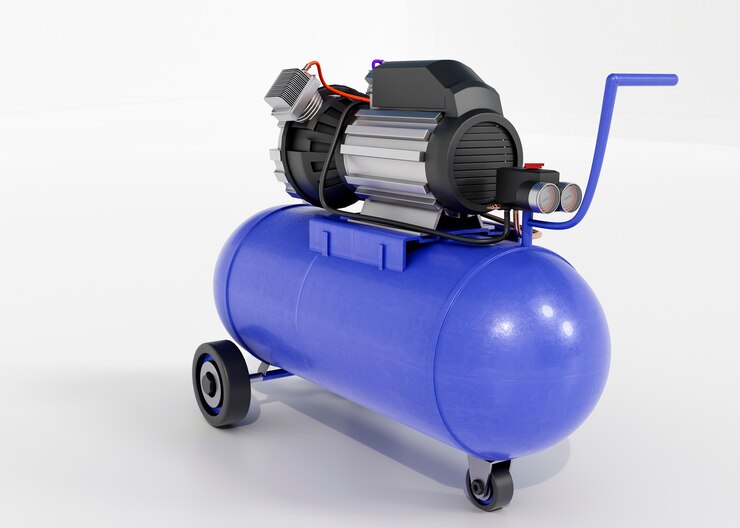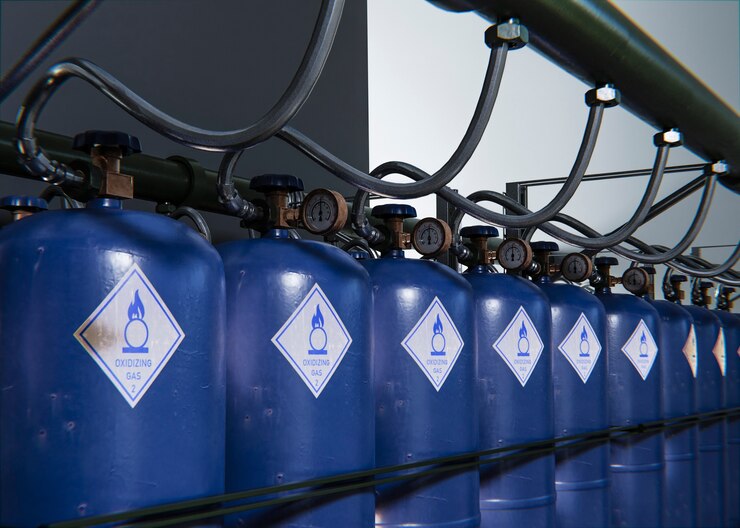Heavy-Duty Gas Compressor: Industrial Power Guide 2024
Heavy-Duty Gas Compressors: Ultimate Guide 2024
Heavy-duty gas compressors are used in various industries. They run critical equipment and are essential tools for different processes. In today’s industrial landscape, reliable and efficient gas compression is vital in countless high-pressure applications. That’s where heavy-duty gas compressors always come in: reliable, efficient, and quality work. This article takes us on a tour of Heavy-Duty Gas Compressor examining their design, capabilities, and some cases where they serve various functions.
Understanding Heavy-Duty Gas Compressor
Heavy-duty gas compressors are not like the ordinary air pump. These are designed for high-pressure hydrogen or other gases, and high volume capacity. When reliability is paramount, they more than any other type of compressor are required for these operations.
Here is where the strong portfolios of compressor manufacturer truly come into their own:
- NGV Refueling Stations: The growing popularity of natural gas vehicles creates a need for reliable high-pressure gas. Heavy-duty compressors guarantee that NGV refueling can be swift and smooth.
- Refueling Systems: Heavy-duty compressors are essential in a wide variety of refueling systems in addition to NGVs. They can be used for filling tanks used in industrial processes, testing facilities, and even medical equipment.
- Industrial Gas Applications: Its great flexibility means not only as many as five different kinds of petrochemical fluid compounds but bowls for gas storage too.
Key Features of Heavy-Duty Gas Compressors
Heavy-duty gas compressors are designed to be safe, efficient, long-lasting, and easy to operate. Here is a list of the main functions and features that set them apart for tough environments:’
- Contamination-Free Use: Seal-welded crankcases are characteristic of heavy-duty compressors and these sealed systems mean that lubricating oil or outside air cannot come into contact with the compressed gas. It guarantees that the gas you get is pure, or for many applications such a value should be guaranteed.
- Complies with International Standards: Safety is a top priority. Heavy-duty compressors comply with stringent international standards like ISO to ensure that their design, construction, and operation all adhere at least to the highest safety criteria.
Durability and Ease of Use
Robust and Durable Construction: These compressors are made to stand up to the continual demands of daily service in today’s toughest industries. Quality materials and rugged construction help make sure that you won’t be stuck with an unreliable component or for long periods without compression again as soon it starts working.
Lower Valve Temperatures: Innovations in design improve flow characteristics so that valves run cooler. This means higher efficiency, less wear and longer life for the compressor.
Crankshaft-Driven Oil Pump: A dependable crankshaft-driven oil pump makes certain that all essential parts receive proper lubrication. This reduces friction and maximizes compressor efficiency.
Customization Options for Specific Needs
Standardized Designs: For standard applications, manufacturers do offer standardized heavy-duty compressor models. This “plug-and-play” solution means less time spent on installation and provides an inexpensive way for straightforward requirement settings that would otherwise require different expensive equipment to satisfy.
Tailor-Made Designs: For special applications with specific pressure requirements or gases, manufacturers can design tailor-made compressor solutions. This makes the equipment fit perfectly for your needs, resulting in excellent performance and less wasted energy efficiency overall.
Full Customization Options: Many manufacturers provide a high degree of customization services for their heavy-duty compressors. Users can use inlet pressures, and multi-stage stage configurations to double their flow rates from a certain amount per hour to more than twice what they were before–and discharge high pressures if desired.
Highlighting Specific Compressor Technologies
Within the field of heavy-duty gas compressors, our two main technologies are, undoubtedly, the piston compressor and the oil-lubricated reciprocating one. We continue along and end with the strengths and Applications of EachPiston Compressor:
- Piston Compressors: Piston compressors have been the ideal choice for heavy-duty gas compressing. A particular kind of positive displacement compressor, this machine is capable of compressing itself from stage to stage on a single stroke.They can be put to work on a wide variety of pressures.
Heavy-Duty Gas Compressor Applications
They are suitable for a wide range of pressures and gas types. Here’s a deeper dive into piston compressors:
- CNG Refueling Applications: Piston compressors forever accompany the natural gas station for re-fueling compressed natural gas vehicles. Being able to compress natural gas so that it can be fed to NGVs efficiently at high pressures (normally about 200-250 bar), these are just the right machines for this job. The European and American Standards:
- European and American Standards: For safety and compatibility in NGV refuelling, the piston compressors in CNG applications adhere to stringent European (ISO 11439) and American (ANSI AGA 7.3) standards.
Oil-Lubricated Reciprocating Compressors
Oil-lubricated reciprocating compressors provide a more cost-effective option for the application when this is a primary concern.
These compressors make use of pistons for gas compression, just as with reciprocating compressors. But they also use oil as their mechanism lubrication for moving parts to cut down the amount of friction and wear the load-bearing surface bears.
Here are the three main benefits:
Quick Installation: Oil-lubricated reciprocating compressors typically arrive in pre-assembled and pre-tested packages. As the saying goes, it is a “plug-and-play” design that provides for rapid installation. That minimizes downtime in your compression system and allows you to get up and running quickly so you can start making money.
Low Maintenance Requirements: The lubricating oil on these compressors decreases maintenance needs. All this results in lower ongoing operating costs.
The Benefits of Heavy-Duty Gas Compressors
Heavy-duty gas compressors do far more than just crush gas. They provide such a range of benefits as to turn them into indispensable allies to many industries.
Reliability: These compressors are designed to work under pressure and keep on working, hour after hour. Their sturdy design and first-class materials make for smooth running and little if any downtime.
Safety: Due to the nature of gas compression, safety comes first in any application. Heavy-duty compressors have high-pressure safety joints and other features that substantially decrease the likelihood of catastrophic failure.
Applications Beyond the Ordinary
Gas Compressors are widely used for refuelling stations of natural gas vehicles and industrial gas filling. However, their application range goes much further than this. Here are some examples that illustrate this diversity contribution:
- Hydrogen Fueling Stations: Growing numbers of the world’s major automobile manufacturers are now working on hydrogen-fueled vehicles. Developing suitable compression technologies for use in hydrogen fueling stations is an important part of paving the way toward a cleaner and more sustainable transportation future!
- Food and Beverage Industry: The food and drinks industries are using nitrogen to protect food from spoiling or deteriorating. Heavy-duty compressors provide a constant supply of compressed nitrogen gas for vital tasks such as this.
Choosing the Right Heavy-Duty Gas Compressor
Find something suitable for your specialized wants and needs. To put it another way, it is essential to bear several factors in mind when it comes to selecting the right heavy-duty gas compressor makers.
Evaluating Your Application Needs
The first step is to make a comprehensive evaluation of your application characteristics. On the one hand, consider what type of gas you have to compress potentially. On the other hand, different types of compressors will have differing requirements for pressures and flow rates.
Matching these parameters to the specifications of the compress group is necessary for getting maximum efficiency from it. So one can’t help but stress that choosing a reputable compressor producer is critical. An honest manufacturer does not just give you the right compressor but will also guarantee stand-by service like its own parts department and service technicians.
The Future of Heavy-Duty Gas Compression
Exciting developments could be seen in future high-end gas compression. Below are some trends that are shaping the industry:
- Smart Compressors: These intelligent machines can monitor their own performance, diagnose potential problems that might arise, and even remotely dialogue with receiving stations. Predictive maintenance at last becomes feasible as a result downtime is minimized.
- Material Innovations: In terms of material science R&D, lighter, stronger materials and anti-corrosive metals are being researched for the components of compressor manufacture. This will mean enhanced durability of compressors efficiency in operation longer life spans and lower costs overall.
Summary
Heavy-duty gas compressors are the secret weapon of industry sweepstakes, silently ensuring that critical processes run smoothly. These workhorses are reliable and safe and deliver high-pressure natural gas for a wide range of tasks from NGV refueling to keeping food fresh. With a minimum of maintenance, built to last and keep such a range of essential tasks going steadily. Many industries have been helped by this one piece of equipment. If you are looking for top-notch compressors then we highly recommend you to try reliable and safe and deliver high-pressure natural gas Heavy-duty gas compressor.
Read More: Industrial Gas Compressor Types: Complete Guide 2024


